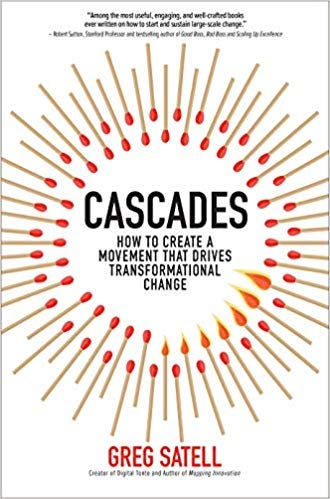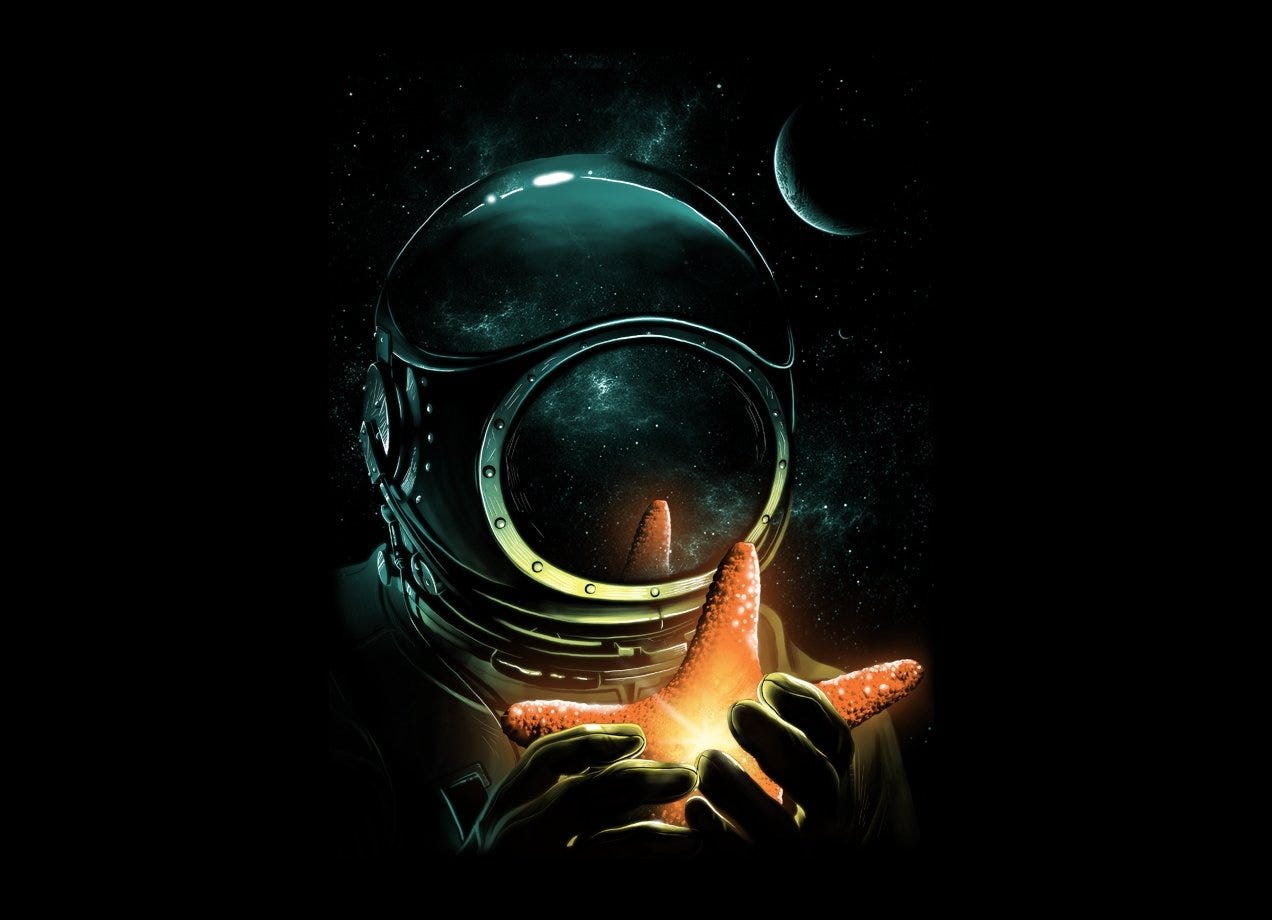
“The Chinese use two brush strokes to write the word ‘crisis.’ One brush stroke stands for danger; the other for opportunity. In a crisis, be aware of the danger — but recognise the opportunity.” — John F. Kennedy (this is a popular mistranslation but often cited)
VUCA is an acronym to describe the volatility, uncertainty, complexity and ambiguity of general conditions and situations. The U.S. Army War College introduced the concept of VUCA to describe more volatile, uncertain, complex and ambiguous multilateral world perceived as resulting from the end of the Cold War. I think you will agree that we can characterise our world today by VUCA. Stock market unrest means volatility is at highs not seen since 2008. Many of us are uncertain about our future. Self isolation from loved ones is complex, and the future is ambiguous.
Despite the crisis we are experiencing, it presents us with an immense opportunity to reset. Resetting means change, but change is one of the most difficult things for human beings. We often need a crisis to force us to change. As organisations, it is sometimes the burning platform of a declining industry, a startup competitor or a global recession. As an individual, it can be a workplace redundancy, a life crisis or an unexpected health issue. However, even when that crisis arrives, many of us cannot adapt.
Research reveals that when patients with heart disease who have undergone traumatic heart bypass surgery are instructed to change their lifestyle or they will die, only a mere 9% make the necessary adjustments. Even when they are facing certain death, they will revert to their old habits. A cardiologist friend of mine told me that many of his patients prefer not make required lifestyle changes but would rather go on living a life of excessive consumption and then expect a doctor to “fix them” when they are “broken”.

Unlike the person who will not make the required adjustments to save their own lives, the Covid-9 pandemic is different. There is no “them” to fix us, we are in it together, we must all take action. This is not about us individually, it is about us a collectively. The analogy of Spaceship Earth is particularly apt. The spaceship is a metaphor for the biosphere, the system of all living things on Earth. The passengers of the ship represent all the humans on Earth. Outside the spaceship, the universe is hostile. The interior is a complex life-support system capable of providing everything that the passengers need to thrive. On Spaceship Earth, there are no passengers, only crew, and everyone has a contribution to make. On Spaceship Earth, every action we take has an impact. With Covid-19 it is not a case of what we do, but equally what we choose not to do.
Negative Power and Reverse Catalysts
I recently spent a memorable evening with Charles Handy in front of a blazing fire at his home in London (full interview here). Amidst the many ideas we discussed, Charles shared a story of when he worked for Shell, the British-Dutch oil and gas company. Shell management asked Charles to oversee the construction of an oil rig in a natural region of Italy. Charles disagreed with the move and kept ignoring the order and did his best to delay the build. He did not want to destroy a natural landmark in the name of capitalism. The power of such an organisation just brushed him aside and built the plant. The point Charles was making is that we have positive power to move things forward and we have negative power to delay things. This is what he called negative power.

Greg Satell is a two-time guest of the Innovation Show and his latest fantastic book is “Cascades: How to Create a Movement that Drives Transformational Change”. In his book, Greg expertly explores how even when the spark of change catches fire, it often fizzles out almost as fast as it started. The status quo never gives up without a fight. This Covid crisis reminded me of the cover of Greg’s book and how to create a movement you need to align the catalysts and create the spark. This is the focus of most of my writing on change and transformation, that is how we can be the catalysts for change.
However, this current situation requires a very different approach, where we need to adopt negative power and be a reverse catalyst. Despite overwhelming evidence that social distancing will slow the spread of Covid-19, many people insist on mixing, on risking spread to serve their own needs. (Ireland had to close pubs and restaurants because despite the request for social distancing people insisted on going). This is not about us individually, it is about us collectively. It is about quelling the pressure on our health care systems; it is about shielding our elderly and our vulnerable. The power of negative power is essential.
The Opportunity in the Crisis

We will make it through this pandemic, there will be tragic deaths, bankruptcies and massive economic disruption, but life always finds a way. Out of every crisis comes an opportunity to reassess, to start afresh, and to let go of mindsets and behaviours that no longer served us. I hope this crisis will open our eyes to those crises which are happening every day. This pandemic is a new challenge, but the following are still pandemics. Our negative power can help reverse these numbers.
49,041 people die of cardiovascular diseases every day. (17.9M per year)
Air pollution kills 21,971 every day. (8.8 million per year, more people than wars or infectious diseases.)
3,561 people die in car accidents every day. (1.3 million people die on the world’s roads and 20–50 million are injured every year.)
I hope this pandemic is the start of a new beginning, where we no longer expect “others” to solve these global problems. Covid-19 shows us how we can collaborate and contribute by what we do not do as much as what we do. Cardiovascular disease can claim the lives of the healthy, but not in all cases, many persist in overconsumption despite the warnings and the threat of ill health and death. Equally, we all contribute to air pollution in some small way and we are all not squeaky clean in speeding or checking our phones while driving.
C. S. Lewis once said, “Good and evil increase at compound interest. That’s why the little decisions we make every day are of infinite importance. The smallest good act today is the capture of a strategic point from which, a few months later, you may go on to victories you never dreamed of.” I leave you this week with the parable of “The Star Thrower,” that encapsulates how every small contribution makes a difference.

One day, an old man was walking along a beach that was littered with thousands of starfish that had been washed ashore by the high tide. As he walked, he came upon a young boy who was eagerly throwing the starfish back into the ocean, one by one.
Puzzled, the man looked at the boy and asked what he was doing. Without looking up from his task, the boy simply replied, “I’m saving these starfish, Sir”.
The old man chuckled aloud, “Son, there are thousands of starfish and only one of you. What difference can you make?”
The boy picked up a starfish, gently tossed it into the water and turning to the man, said, “I made a difference to that one!” adapted from The Star Thrower, by Loren Eiseley (1907–1977)
This change means a shift from a “me mentality” to a “we mentality”. We must do our part, however small.
Thanks for Reading and Stay Safe.
On this week’s Innovation Show, we welcome Lisa Bodell the author of “WHY simple WINS: Escape the Complexity Trap and Get to Work That Matters.”
Imagine what you could do with the time you spend writing emails every day.
Complexity is killing companies’ ability to innovate and adapt, and simplicity is fast becoming the competitive advantage of our time.
Our guest today helps leaders and their teams move beyond the feelings of frustration and futility that come with so much unproductive work in today’s corporate world to create a corporate culture where valuable, essential, meaningful work is the norm.
By learning how to eliminate redundancies, communicate with clarity, and make simplification a habit, individuals and companies can recognise which activities are time-sucks and which create lasting value.
Simplification is a skill that’s available to us all, yet very few leaders use it.
Simplification is the right thing to do–for our customers, for our company, and for each other.
Operating with simplification as our core business model will make it easier to be respectful of each other’s time.
Simplification drives culture, and culture drives employee engagement, customer relations, and overall productivity.
More about Lisa here: https://futurethink.com/